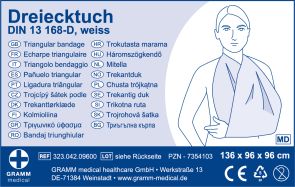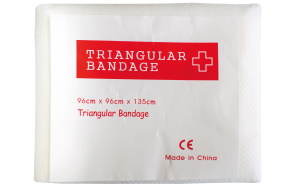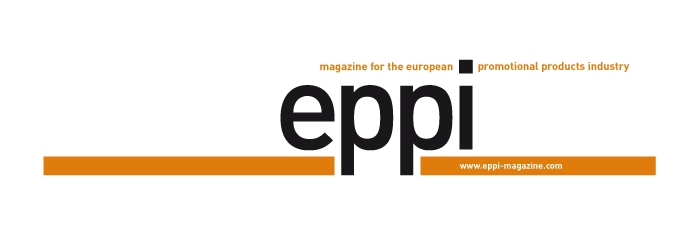At the latest since COVID-19, the sales of medical products have become part of the everyday routine for many promotional products distributors. Whereby several points have to be observed to ensure their legal implementation, warned Marc Sauer, who has been the Managing Director of Gramm medical since 2003. The company sells medical products and first-aid equipment to the promotional products market via its Medical Promotion division. As a skilled medical product consultant, Sauer is among others responsible for the quality assurance and legal compliance of the products.
The theme health has been omnipresent over the past two years. Is this also tangible on the promotional products market?

Mark Sauer
Marc Sauer: We have experienced strong demand in the hygiene section, i.e. masks and disinfectants, imprintable plasters for use as injection plasters were also very popular. However, our further medical products have been seldom implemented in the promotional products industry over the past two years, since there was a lower need for promotional products in general due to the cancellation of events and loss of customer contacts and overall less budget was spent on haptic advertising. However, we are now noticing that the enquiries also for larger volumes are increasing again.
Without doubt, an overall sensitisation has taken place that more attention has to be paid to health themes – especially in conjunction with other topics such as sustainability. Many people also understand that for instance our first aid boxes are not items that are simply discarded, but are indeed durable promotional products that often accompany the target group for five years or longer so that the focus lies on several current trends at once.
Last May a new medical device regulation (MDR) came into effect in the EU. Which products count as medical products?
Marc Sauer: Medical products are defined as such via their purpose of use. Everything that is supposed to have a healing or relieving effect is thus a medical product. These include classic dressing materials and first-aid kits, as well as OP masks and plasters, but also condoms and cool pads.
What are the most important changes that arise as a result of the MDR?
Marc Sauer: Until now there was only one guideline across the EU, which was implemented through the respective national law. The directive is now binding for all EU members. Whereas most of the points of the directive were already regulated in a similar way, there is one essential difference, which is of great significance for the promotional products market if it hasn’t been regulated in the national law before: When the MDR came into force the obligations for distributors increased significantly. According to article 14, the distributor is responsible for checking that the labelling and compliance of the products is correct and they can be made liable as the distributing company if something is not in order. This is not a minor offence, namely in the case of resulting health problems, it can lead to criminal prosecution. In case of a recall, where all products have to be withdrawn, the potential economic damage is immense. And one can assume that the responsible authorities will carry out much stricter controls than had been the case hitherto.
We try to advise companies on the subject as well as possible, but many distributors are not aware of the responsibility they bear.
What do promotional products distributors who sell medical products have to beware of?
Marc Sauer: The most important aspect is to ensure the labelling obligations are complied with. Elementary points are the correct address of the manufacturer or distributing company so that in case of problems – i.e. skin irritations after applying a plaster – users have a direct point of contact where they can inform themselves about the ingredients, etc. Unlike other promotional products, it thus doesn’t suffice if the address of the distributor is simply printed on the product. The manufacturer or distributing company has to be resident in the EU or have a corresponding representative in the EU. He has to register the products with the respective regional council. This registration process is extremely laborious and among others entails a documentation that makes it possible to trace batches back to the manufacturers of the raw materials. The classic promotional products importer for example is normally not able to do this and as a rule sources the products from a specialist.
Every medical product has to carry the CE mark and must contain instructions for use or at least a precise description of the product in the respective language of the country where it is sold. Article and serial numbers have to be attached, the expiry date – i.e. for sterile products – has to be clearly legible, the symbols aligned to the internationally applicable standards. Due to all of these reasons, distributors are not allowed to repack medical products, because all relevant information may then possibly not be recognisable on the new packaging.

How to do it: An example of a legally correct, clearly labelled and admissabe medical product.

How not to do it: essential particulars like the manufacturer and items’ details and the serial number are missing.
Marc Sauer: As an initial measure we advise them to get the original manufacturer to send them a declaration of conformity. This declaration contains in which product class and according to which guidelines the product was certified, which authority monitors the manufacturer, etc. Furthermore, we have developed a whitepaper for promotional products distributors, which we are glad to provide. This also contains a checklist, which the distributors can go through meticulously. And they should definitely do so – after all it is not just about their own legal assurance, but also about that of the customers and users. If goods actually do have to be recalled, it causes immense damage to the image of all involved. On top of which, the distributors are also obliged to observe the market. Strictly speaking they have to report any products they see that obviously don’t comply with the legal requirements.
What experiences have you made: Are there many products on the market that don’t comply with the regulations?
Marc Sauer: As a gut feeling I’d say nine out of ten online shops of promotional products consultants list medical products, that are not offered in a legally-conform manner. This could become a problem for the respective distributors for the abovementioned reasons, simply because the role of responsibility of the distributors has changed as a result of the MDR. But this is also a problem for the market of medical products itself. The documentation and quality assurance is extremely laborious and thus costs a lot of time and money, for instance the demands in quality assurance have quadrupled. Many smaller companies won’t be able to afford to do it anymore. However, the prices on the market have been ruined by suppliers, who don’t comply with the regulations. The distributors and users are presently accustomed to prices that are no longer marketable. This is going to have to change.
//Dr. Mischa Delbrouck spoke with Marc Sauer.
photos: Medical Promotion





